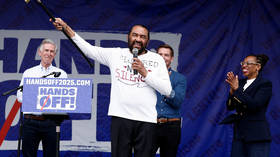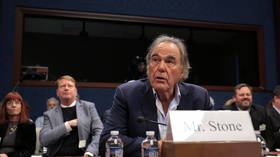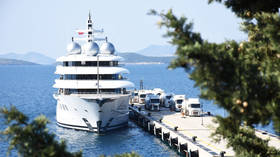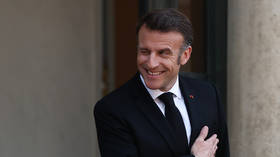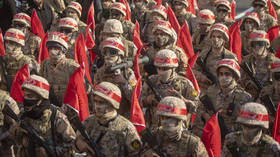Pressure grows as more join Czech hunger strike
Opposition to the proposed U.S. radar base in the Czech Republic has grown from a few individual hunger protests to a chain of people – each willing to fast for twenty four hours in turn. First to take up the baton in the hunger strike relay
First to take up the baton in the hunger strike relay is Petr Uhl.
During the Communist regime Petr spent nine years in prison for going against what he describes as the Soviet occupation. He fought hard for independence and he does not want the American military to set up base in his country.
He says: “I believe that this U.S. radar base will lead to war, not peace. The Czech government only wants it so it can show Russia that Moscow is no longer an authority here and instead the White House is the master. But I don’t want to be a pawn in other countries’ war games.”
Joining forces with the No To Base campaigners, he is also calling for a referendum on the radar issue.
The latest opinion poll by the Czech Academy of Science shows 65 per cent of the population is against the radar base, but it seems the people’s voice is not being heard.
The Czech government has not agreed to any of the hunger strikers’ demands. Instead it branded hunger strikers ‘blackmailers’. Prime Minister Mirek Topolanek is denouncing the hunger strike and says it is an “absolutely irregular means of protest”.
Olga Zubova is another of the links in the hunger-strike chain due to start fasting on Friday. She says: “It is one of many ways for people to express their views and opinions. And, by taking part in the hunger strike, I want to demonstrate the opinion of the majority of the Green Party, which opposes the radar base”.
After a 24-hour protest she will be passing on the baton to Czech Radio journalist Jeronym Janicek, who has been speaking out against the radar plans – gauging public opinion through his talk show.
By taking part in this symbolic hunger strike he aims to start a radio wave of protest. He believes the government does not even offer dialogue with the citizens on the issue. “The people we voted for to represent our country promised that they would explain and discuss the radar issue with us,” he says. “But we’ve seen no evidence of any discussion whatsoever”.
Meanwhile, across town in the Czech parliament, some politicians are sporting anti-radar T-shirts. Opposition is gathering momentum and with a weak majority in parliament the Czech government may find it hard to muster support.



